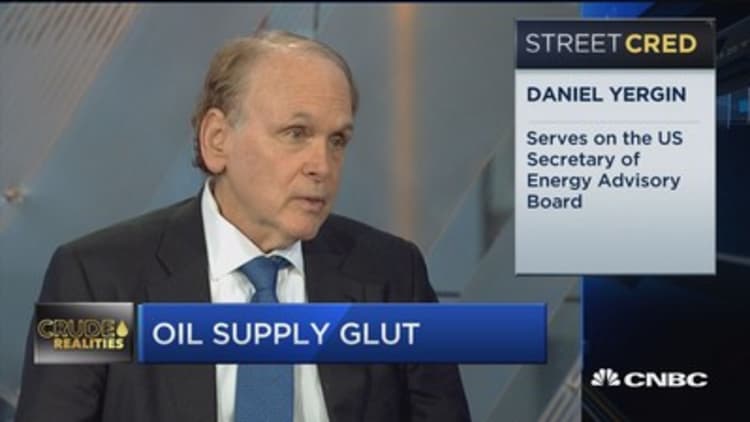
With stubbornly low oil prices hurting the coffers of international producers, Russian President Vladimir Putin is only agreeing to the OPEC-led output cut extension because he's worried about his grip on power, said Daniel Yergin, a leading geopolitical and oil analyst.
"I was in St. Petersburg two weeks ago, and the sense you got is Putin is actually looking at his March 2018 election and wants economic stability. He doesn't want a kind of free-fall in prices," Yergin told CNBC's "Squawk Box" on Thursday.
Last month, Saudi Arabia and Russia, the world's top two oil producers, agreed to extend production cuts for nine more months until March 2018 in hopes of pushing up prices by reducing the global crude glut and putting more revenue back into their economies.
"That's the pressure that they're feeling. That's why they came together. And that's why what the Saudis wanted to see was Russia on board. And Russia got on board because of the same revenue thing," said Yergin, who won a Pulitzer Prize for his best-seller "The Prize: the Epic Quest for Oil Money and Power."
The policy rollover came despite the failure of November's landmark output reduction deal to clear the supply overhang. Prices are back to levels before the original agreement, Yergin pointed out.
In another dose of geopolitical uncertainty hanging over the oil market, Yergin cited the decision last week by Saudi Arabia, Egypt, the United Arab Emirates, Yemen, Libya, Bahrain, and the Maldives to cut ties with Qatar.
The reason behind the break was concern over Qatar's alleged support of Iranian-backed militants, Yergin said, adding Qatar finds itself "in a corner by other Gulf producers."
Despite President Donald Trump's criticism for its alleged support of terrorism, Qatar said it signed a deal to buy F-15 fighter jets from the U.S. for $12 billion. Boeing is the prime contractor on the fighter jet sale.
U.S. crude briefly dropped to a six-week low Thursday morning, under pressure from high global inventories and doubts about OPEC's ability to implement the agreed upon extension in production cuts. U.S. crude sank 3.7 percent to $44.73 per barrel on Wednesday, breaking a three session win streak.
West Texas Intermediate crude began tanking in June 2014 from around $108 per barrel. WTI prices lost about 75 percent, plunging to under $27 per barrel by early 2016. Prices have certainly recovered dramatically since then but were still trading under the key level of $50 per barrel.


